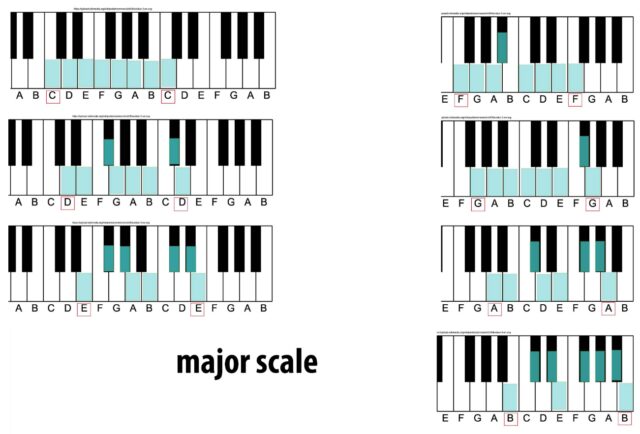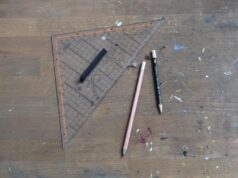
When most people learn music theory, it is because they want to apply the knowledge somewhere else like learning a musical instrument from a reputable music school such as LVL Music Academy or writing their own piece. From the point of learning music theory to finally applying it to a musical instrument is a long journey. It is a journey most people do not want to take.
Music theory could be challenging and seemingly abstract. Without the right strategies and teachers, basic lessons could be difficult. What happens when you add a sharp to a note? How do I know if the stick of my minim should go up or down? Which is G-clef again – the one on the treble staff or bass? You are bound to be confused at certain times when you are learning music theory. However, these fantastic tips can make your journey go smoother and more enjoyable.
1. Do not skip steps

Yes, this article is about helping you learn music theory 10x faster. However, skipping steps to get ahead will not help. The first thing you should learn about music theory is that learning never really stops. Music is a continuum, and the various concepts are connected. If you choose to skip steps, you will mix things up eventually. You will spend more time trying to get back on track. If you are learning to play the piano, get yourself a good piano teacher to help you stay on track. Follow your learning guide page by page and follow through with your music tutor.
2. Consistency is key
None of the great names in music recorded success by just long hours of study. Consistency was more important, even if their talent also had a role. It is counter-productive to be inconsistent when learning music theory. If you stay away from practice or learning, you will have difficulty when you come back to it. Before learning something new, you will have some challenges remembering the last thing you learnt. You do not need long hours of study and practice. If you want to learn quickly, be so consistent with your music theory that it comes as a habit.
3. Be patient with yourself.

Learning takes time. Even the greatest musicians in history did not become the best overnight. You need to embrace the process and wait it out. Try not to get frustrated easily. If you cannot figure out something immediately, give yourself some more time. Whatever disappointments you meet, do not be tempted to quit. Each time you decide to put off learning because of one challenging phase or the other, it is more difficult to get back on track. This would invariably delay you.
4. Set goals
Setting goals help you learn music theory faster. This does not mean you should task yourself with learning jazz chords in a day. It might just be as simple as learning how to use the technical names (degrees) of the notes in one week. Setting realistic goals helps you track your progress. It also motivates you to work harder when you are lax. It gives you a pace you can easily keep up with. When your goals are time-bound, you learn to focus on achieving something and avoid distractions. This helps you move faster with your learning.
5. Practice Exercises

You cannot be sure you have really learned and understood a music theory topic if you do not try and apply it. If you have just learned about the major scale, repeatedly practice the scale on different keys. If it is chords, check out some random chords and see if you can name them. Practicing music makes it more of a lifestyle and less theoretical. When you practice every step of your way, you should not have any challenges in the future that will delay your learning.
6. Listen to music
Listening to music keeps you in the mood for learning continually. Paying close attention to songs can help you pick up some things you might have learned. Also, you get to have a good ear for notes when you listen to music enough. Flowing with songs will help you master your beats better and improve your use of the metronome. You may be able to read the beats better. You can understand the difference between a crotchet and a dotted crotchet, or what staccato sounds like.
7. Watch Tutorial Videos

Sometimes, your tutor or teaching manual might not explain some details well enough. Or your tutor did explain well, but you got confused after that. Instead of wasting time trying to understand under such circumstances, you can easily find a video that explains better on YouTube. Many other learning platforms can provide a more relatable hack to whatever is confusing you. Sometimes, the guide you are using does not explain things well enough, or the examples are not so relatable because of cultural differences. Using a platform that teaches with more familiar examples of mnemonics will really help you learn faster.
8. Learn the techniques and learn the mnemonics
Most of the subjects in music theory can be worked out. That is the whole point of learning music theory. But in real-life applications, it could take too long to always work things out. You might not have all the time to tease out “A Flat” has four “flat” signs on the scale. But you get that faster if you have mnemonics for your scales. The same thing goes for the lines and spaces of your staves and many similar things in music. You do not have to cram everything once you know the mechanics and the mnemonics. It is even more fun when you come up with the mnemonics by yourself.
Conclusion
Learning music theory is a lifetime thing. Now and then, there will be something new to learn. It is important to have concrete music theory knowledge because it is foundational for any musical instrument you want to learn. Learn to pace yourself well, have a great deal of patience, and be consistent to avoid frustrations. Overall, the tips we have discussed will definitely help you learn music theory 10x faster.









